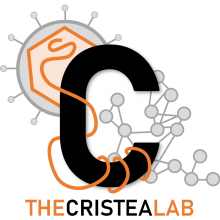The life cycle and pathogenesis of human cytomegalovirus infection: lessons from proteomics
Type
Viruses have coevolved with their hosts, acquiring strategies to subvert host cellular pathways for effective viral replication and spread. Human cytomegalovirus (HCMV), a widely-spread β-herpesvirus, is a major cause of birth defects and opportunistic infections in HIV-1/AIDS patients. HCMV displays an intricate system-wide modulation of the human cell proteome. An impressive array of virus-host protein interactions occurs throughout the infection. To investigate the virus life cycle, proteomics has recently become a significant component of virology studies. Here, we review the mass spectrometry-based proteomics approaches used in HCMV studies, as well as their contribution to understanding the HCMV life cycle and the virus-induced changes to host cells. The importance of the biological insights gained from these studies clearly demonstrate the impact that proteomics has had and can continue to have on understanding HCMV biology and identifying new therapeutic targets.

